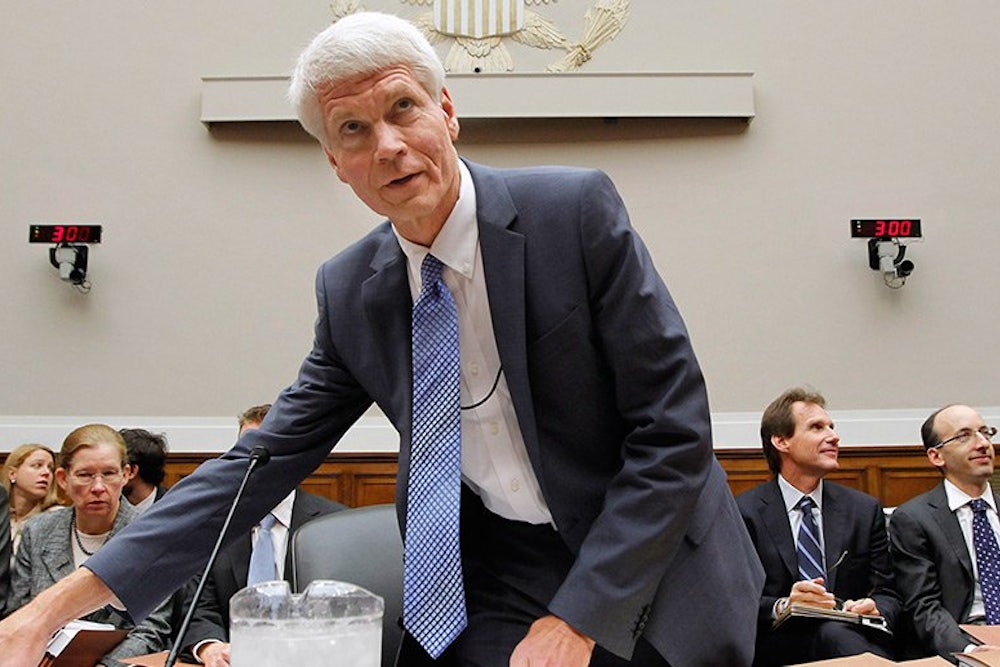On Monday evening, Orrin Hatch, the chair of the Senate Finance Committee, and Paul Ryan, the chair of the House Ways and Means Committee, announced that they would retain Thomas Barthold as head of the Joint Committee on Taxation. That may sound like an innocuous role but it’s vital for the legislative process—and Monday’s news should put liberal minds at ease that Republicans are not looking to rig either JCT or the Congressional Budget Office in their favor.
When Bloomberg’s Dave Weigel reported in December that Republicans would not retain Doug Elmendorf as head of CBO, liberals worried that the GOP would install a partisan hack to head the agency and undermine its credibility as a nonpartisan scorekeeper. Those worries intensified last week when Republicans directed JCT and CBO to use “dynamic scoring” in their budget estimates.
Dynamic scoring takes into account macroeconomic effects of legislation. In other words, if a bill is projected to increase economic growth, the additional revenue generated from that growth is factored into CBO and JCT’s revenue estimates. Theoretically, it makes sense. But it’s really hard for the budgeteers to make those estimates accurately in practice. And Democrats worry that Republicans will appoint a partisan who uses unrealistic or highly uncertain estimates that heavily favor the GOP.
The media has focused more on whom Republicans will choose to head CBO. But their choice for JCT is just as important. “CBO under the Budget Act uses the revenue estimates prepared by the Joint Committee on Taxation,” Paul Van de Water, a senior fellow at the Center for Budget and Policy Priorities who worked at CBO for more than 18 years, told me last week. “CBO doesn’t do most of the estimates itself. Whoever the staff director is is just as important as who the CBO director is.” In other words, directing CBO to use dynamic scoring and installing a partisan hack at CBO would not be enough for Republicans to rig the budget scores in their favor. They’d also have to appoint a partisan hack at JCT.1
There were rumors that Republicans would not retain Barthold, but Ryan and Hatch put those rumors to rest Monday. “[Barthold] and his staff produce quality, objective reports and analyses that help shape the major policy debates that are important to hard-working American taxpayers,” Hatch and Ryan said in a joint statement. “We look forward to continuing our work with him in the 114th Congress.”
Of course, Republicans could remove him at another time and appoint a partisan hack instead, particularly if they aren’t happy with JCT’s revenue estimates going forward. But for now, it seems clear that Republicans aren’t trying to undermine CBO and JCT for their own political gains. Crisis averted.
And even that wouldn’t be enough. They would also have to convince JCT and CBO staff to risk their intellectual credibility by using unrealistic assumptions to produce partisan estimates. That would likely lead to mass staff departures—a clear sign that the fix was in.
